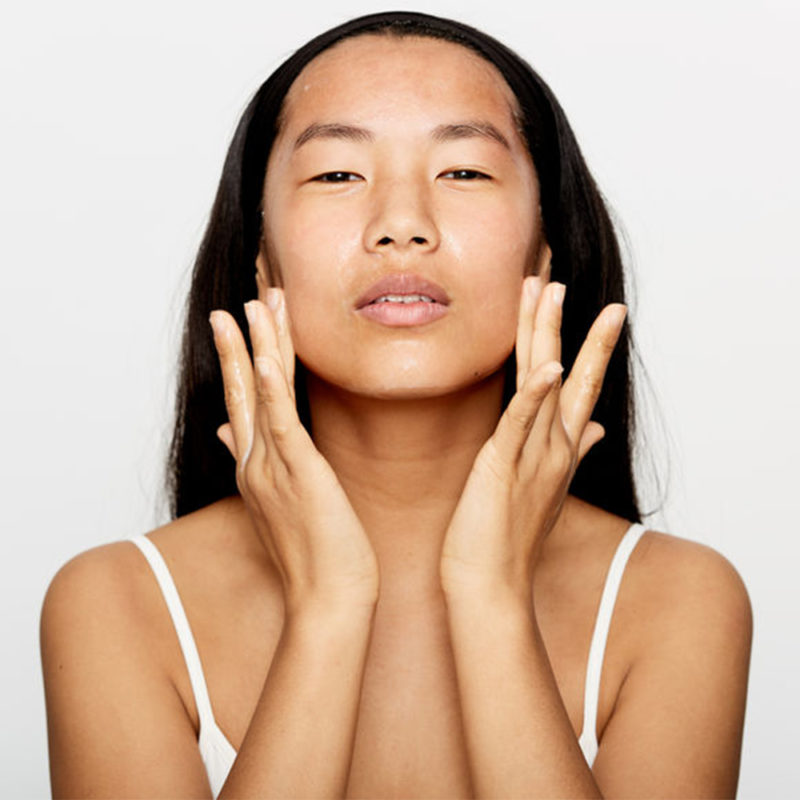The naughty list of skin care ingredients is a long one. However, not all of the offenders deserve their spots; some of them are simply misunderstood. Here, skin care experts discuss five ingredients that have a bad reputation, but aren’t actually as “bad” as we think.
As consumers, we’re more discerning than ever when it comes to what we put on our skin. This is a good thing! However, because rumors spread like wildfire these days, it’s easy to allow misinformation to impact our choices.
A major example of this is the notion that natural or organic ingredients are less harmful than synthetic ones. As Dr. Mona Gohara, vice president of the Women’s Dermatologic Society points out, “Poison ivy is organic, right?” There are plenty of “non-toxic” ingredients that can cause irritation or allergic reactions on the skin.
A reason that so many brands are embracing natural ingredients is that chemicals and synthetics like parabens have earned a bad reputation in skin care. But before we blacklist them from our medicine cabinets completely, we asked some skin care experts to separate the fact from the hysteria.
Parabens
Parabens are considered the bad boys of the beauty world (thanks to a flawed study that claimed that parabens are linked to cancer), but many skin experts will tell you that the negative perception is misguided.
“If you examine the studies closely, you will find that most of the studies use parabens in nonsensical, almost laughable concentrations, or massive amounts of parabens were ingested,” says Nicki Benvenuti, the founder and skin care specialist at Future Derm.
According to the FDA, there is “no information showing that parabens as they are used in cosmetics have an effect on human health.”
It’s also important to keep in mind that products need preservatives. “If not, you would see fungus, molds, and bacteria growing in your creams within days,” says. Dr. Gohara. So if a product claims to be “paraben-free”, it is likely formulated with another preservative that consumers just haven’t heard of yet.
“What we have to think about here is whether you will use the ingredients that have been used for decades without any specific reports about its harmfulness, like parabens, or will you use alternative ingredients that have not been fully examined yet?,” says Gwi-Seok Chu, a director of R&D and cosmetic chemist.
Chemical Sunscreens
“There has been some misinformation that was widely distributed, which suggested that sunscreens can cause cancer. The reality is that there is not scientific data to prove this notion,” says Dr. Gohara.
What is proven is that not wearing sunscreen causes cancer. “Ninety percent of the signs of aging and skin cancer come from unprotected sun exposure,” she says.
If you’re still not comfortable wearing a chemical sunscreen, there are plenty of great physical options to choose from (like the Missha Near Skin Dustless Defense Sun Block SPF 50).
Alcohol
Alcohol can cause dryness and irritation, making it an unpopular ingredient among those with sensitive skin, and rightfully so. However, it’s not without its skin benefits.
“Ethanol (alcohol) has been used in many kinds of cosmetics such as products for oily skin, acne skin, and even other general products as an excellent antimicrobial and astringent agent,” says Chu. “Alcohol can help remove acne bacterium when applied to the skin, while controlling excess oil or sebum for oily skin.”
Silicones
A common gripe against silicones is that they are occlusive and thus clog pores and suffocate skin. However, NYC-based dermatologist Dr. Sejal Shah says that they actually create a breathable barrier and help prevent water loss and make skin appear smoother and more radiant. “Silicone is both hypoallergenic and non-comedogenic and not known to sensitize the skin,” she says.
Their main use, Dr. Shah says, is to “improve the feel, appearance, and performance of topical skin care products”. Without them, the texture of your favorite products would suffer.
If you haven’t had luck with products that contain silicones, it may be because the ingredient can increase the penetration of other ingredients. This could be a good thing, but it could also mean giving an irritating or pore-clogging ingredient an unwanted boost.
Hydroquinone
Hydroquinone has long been used to treat hyperpigmentation, but its reputation was tarnished after studies showed that in very high doses, the ingredient may cause cancer in rodents. But, says, Dr. Pearl Grimes, president of the Women’s Dermatologic Society, “there are no studies in the literature documenting cancers or liver damage associated with hydroquinone [in humans]. The most common side effect of hydroquinone is an irritant contact dermatitis.”
Bottom Line
In deciding what to put on – or not put on – your skin, it’s important to look at the big picture, instead of making snap judgements. How your skin reacts to different ingredients, what your personal skin concerns are, as well as what an ingredient’s purpose in a product is are all things worth considering. For example, if you have oily skin, a product with alcohol might work for you. If you have dry, sensitive skin, you might want to opt for an alternative.
